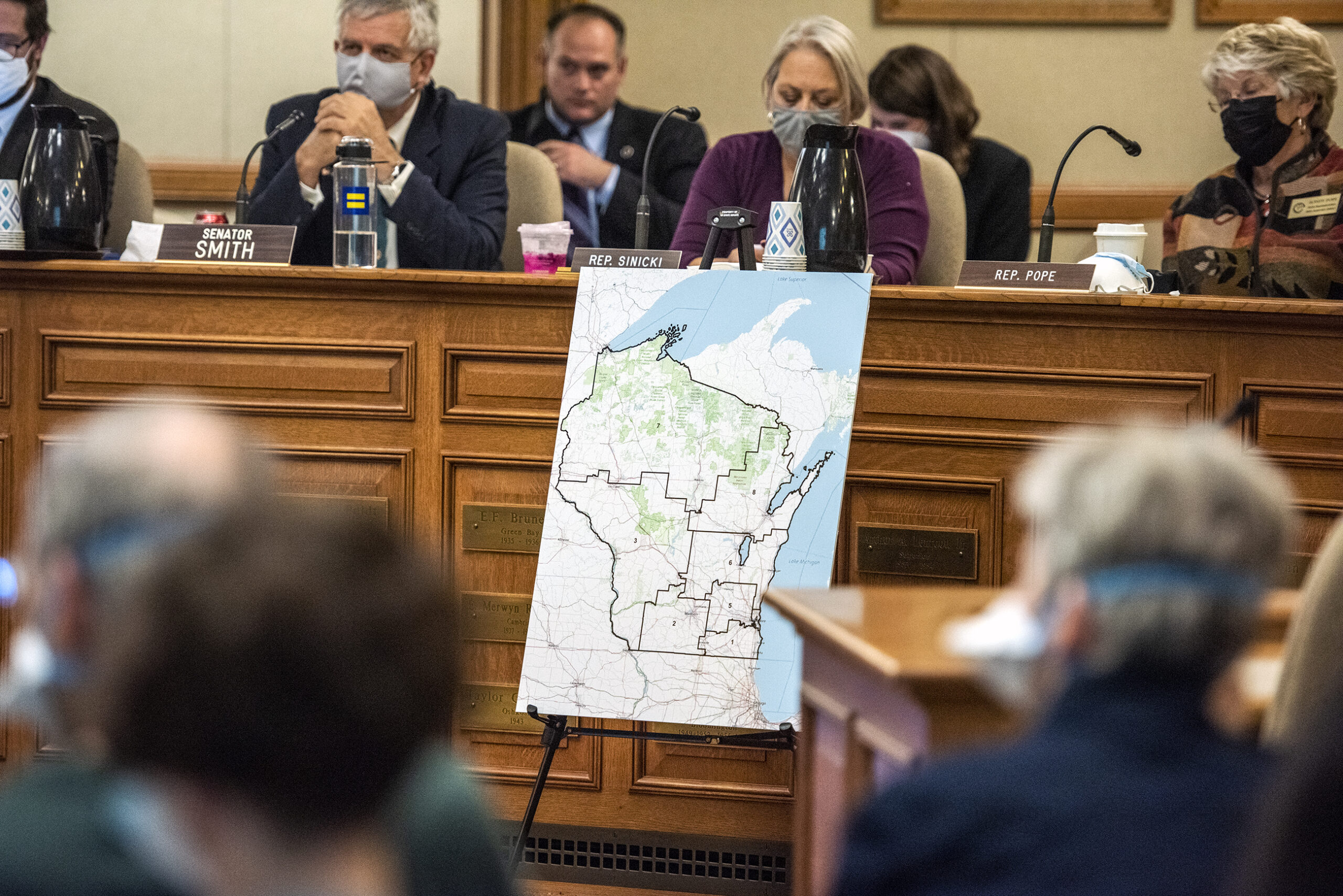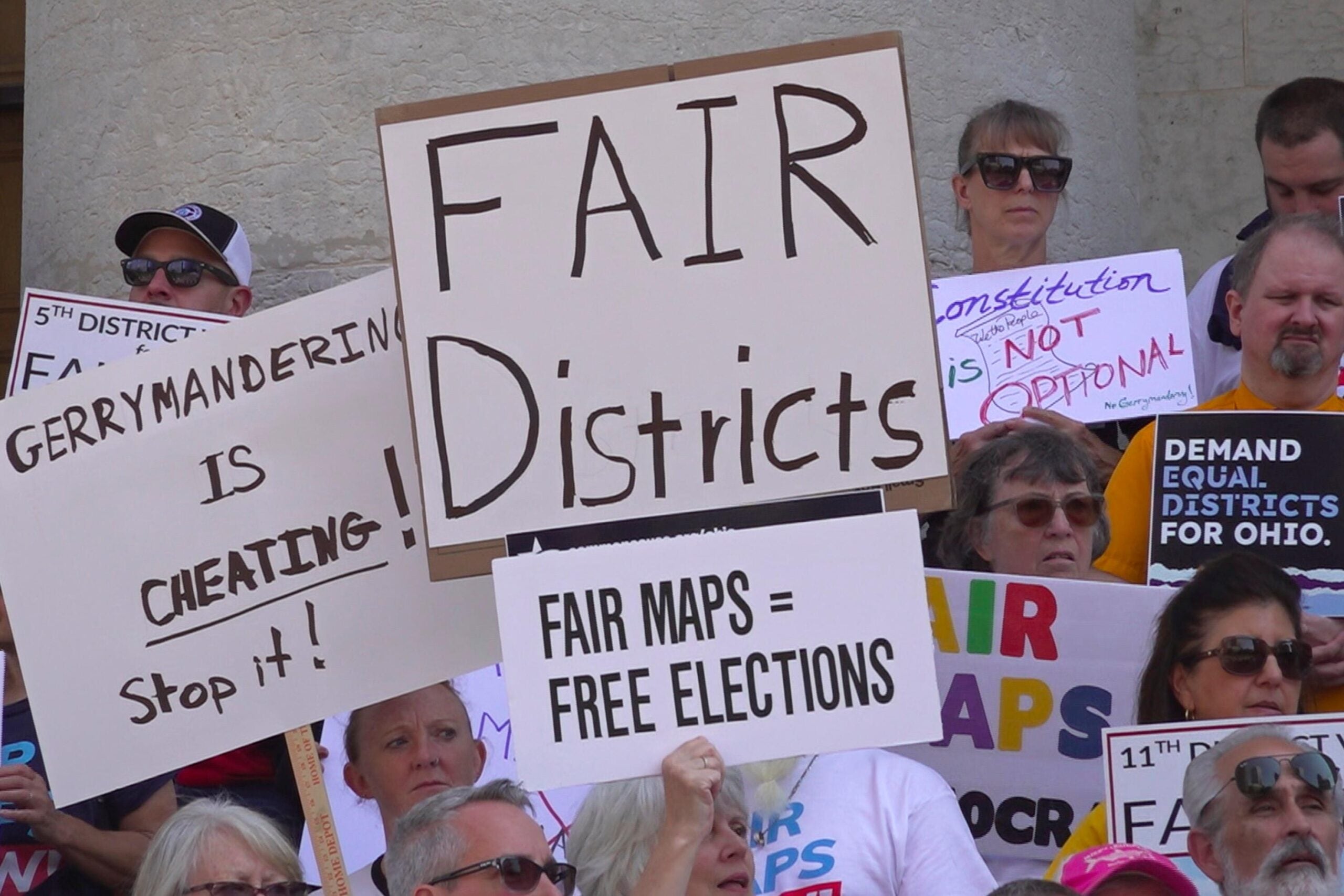Gov. Tony Evers vetoed Republican-drawn political maps Thursday, setting the stage for a legal battle which will decide Wisconsin’s legislative and congressional districts for the next decade.
The maps, passed last week by the Legislature, were described by Republicans as a “least changes” approach, retaining as much as possible of the previous maps while adjusting for population. The previous maps, passed in 2011, have been described by experts as among the most severe partisan gerrymanders in the country.
Evers was all but guaranteed to veto the maps.
News with a little more humanity
WPR’s “Wisconsin Today” newsletter keeps you connected to the state you love without feeling overwhelmed. No paywall. No agenda. No corporate filter.
“I’ve said all along I’d veto these maps if they came to my desk,” Evers said in a video message. “They’re gerrymandering 2.0.”
Both the legislative and congressional maps passed by the Legislature pose a significant Republican advantage, according to the Princeton Gerrymandering Project.
During floor debate last week, Assembly Speaker Robin Vos, R-Rochester, said he believes the Republican-drawn maps are legal.
“They’re constitutional, they’re compact and contiguous, we follow all of the principles,” he said.
Now, the maps will be sent to court, but it’s unclear which court will be the one to ultimately resolve the matter. There are cases pending in both federal and state courts.
Republicans want the case decided by the Wisconsin Supreme Court, where conservatives hold a 4-3 majority. On Wednesday, that court issued an order outlining key dates for the case and setting a date for a potential hearing in mid-January.
Democrats want the matter dealt with in federal court, which has a long history of resolving redistricting disputes and drawing maps. The three-judge federal panel hearing Wisconsin’s case had initially indicated it would hold a trial in January, but has since backed off, indicating it will yield to state courts for now.
In 2020, Evers established the People’s Maps Commission, a group of citizens chosen by retired judges and tasked with drawing maps. The map they produced was more competitive than the Republican-controlled Legislature’s, with only a small GOP edge.
However, the commission’s map was rejected by the Legislature last week, with some Democrats taking the most vocal positions against it. Rep. Sylvia Ortiz-Velez, D-Milwaukee, spoke passionately against the People’s Maps plan, saying it would make it harder for Black and Latino voters to elect the candidates they want.
“The state of Wisconsin is involved in a political partisan battle,” she said during debate. “No one is looking out for the Voting Rights Act.”
Although a number of Democrats voted against the People’s Maps plan, the Republican-drawn maps received no votes from Democrats.
For more on the history of redistricting in Wisconsin and how it impacts political power in the state, check out WPR’s investigative podcast series, “Mapped Out.”
Wisconsin Public Radio, © Copyright 2025, Board of Regents of the University of Wisconsin System and Wisconsin Educational Communications Board.





